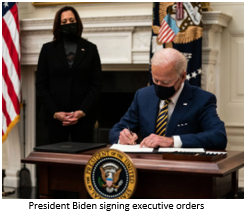In the motion picture Apollo 13, as the crippled spacecraft hurtled home after the aborted moon landing, the astronauts tackled the delicate job of powering up their frozen command module after days of what amounted to cold storage in space. Astronaut Jack Swigert, portrayed by actor Kevin Bacon, noticed condensation forming on many of the craft’s instruments as the crew turned them on. “What’s the deal on this stuff shorting out?” Swigert asked mission control. “Just have to take it one step at a time, Jack,” came the reply. Swigert then said, to no one in particular, “This is like trying to drive a toaster through a car wash.”
Almost every American wants improved infrastructure. People know that we suffer
That being the case, why has getting infrastructure legislation through Congress been so difficult? As work on the issue resumes, it’s clear the path has gotten harder, not easier. The reasons lie in the culture of the two political parties. If the United States is
Pelosi’s Divided Caucus
There’s an old saying in politics that “My enemies I can handle, but God save me from my friends.” That’s the source of Pelosi’s infrastructure dilemma. She doesn’t need Republicans for much of anything. Democrats have the majority in the House, though it’s slimmer than before the 2020 election. If all Democrats vote for any infrastructure bill it passes, pure and simple. But it’s not that simple. Pelosi must keep the Democrats pulling in the same direction. In this instance, they’re the house divided.
“Human” Infrastructure
Biden originally proposed an infrastructure package that not only included what’s in the bipartisan bill, but also significant new
the bipartisan bill containing
traditional infrastructure spending
that could pass with enough
Republican support to break a senate filibuster and a bigger nontraditional bill Democrats might have a chance at passing with only Democratic votes through what’s called budget reconciliation.
Progressives and
Pelosi’s Tightrope Act
Democratic moderates, desperately seeking something they can
run on in the perilous 2022 midterms, don’t want to chance that no
infrastructure bill gets to the president’s desk this year. They’re afraid if
the bipartisan bill doesn’t pass quickly, chances increase that no bill passes
this year, the issue will become embroiled in next year’s campaigning, and all
the work will have been for naught.
Both progressives and moderates want things in the two bills.
While some moderates have reservations about the price tag – and the taxes – associated
with the “human” bill, most are generally sympathetic to its objectives. But
the battle is about what the Democratic Party truly stands for. What hill will
it die on? Both sides are heavily invested in their objectives and that’s what
makes Pelosi’s job so difficult. She’s got to find a way through that car
wash. 





































